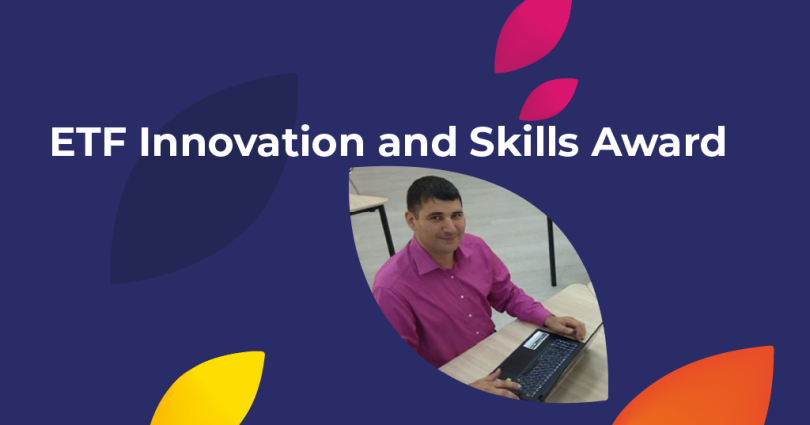
Moldova as the new final nominee for the ETF Innovation and Skills Award 2020.
They take the future seriously at Moldova's Centre of Excellence in Construction in the capital, Chisinau.
The 1,600 students at the centre, which offers initial technical education and training programmes in 10 specialist areas at ISCED levels 3, 4 and 5, are fully involved in the social and educational life of the institution, where advanced digital teaching aids - including Smart TVs with internet connections and multipurpose digital classrooms - are complemented by a focus on the use of renewable energy sources, with student dormitories equipped with solar-powered hot water and other advanced energy saving devices. Classroom furniture is even made by the students themselves, as part of their practical training.
But providing a sustainable environment for the students who live, study, eat and socialise on campus is not the only remarkable thing about the Centre of Excellence. Investing in digital skills has long been a focus and the Centre has participated in a raft of digital competency projects that include the EU's eTWINNING project, a nationwide digital programme sponsored by the Liechtenstein Development Service.
To further embedding digital learning - and distance learning made essential by the restrictions of the global COVID pandemic this year - the Centre has developed its own tailored digital training programme for staff as part of its commitment to continuous professional development.
Under the guidance of Sergiu Coceas, Head of Continuous Training, it is this programme that makes the Centre for Excellence in Construction one of two nominees for the European Training Foundation's Innovation and Skills Award as part of the European Vocational Skills Week, November 9-13.
Sergiu designed and implemented a course designed to help staff at the centre shift to distance learning for construction students.
The course highlights the need for teaching methodology tailored to distance learning using digital tools with a particular focus on assisting students to create digital portfolios of their work and products.
The course is also designed to help widen the Centre's approach to lifelong learning and blended adult training.
Teachers are taught to understand how to facilitate individual and group training via digital means; designing distance learning courses; develop and direct their own training process; cooperate with other training and integrate new digital skills into their existing skills set.
The course - taken over two weeks by 60 teachers - involves both theory and practice (40% and 60%) and ends with a final test and self-assessment questionnaire.
"The pandemic period has shown that increasing awareness of the attitudes of people can serve as a strong booster for efforts in strengthening new learning opportunities," Sergiu says.
Although many of the teachers had experienced steep learning curves, having mastered the new online approach, they had found a renewed confidence, he adds.
"The impact of the course is seen in better results for students, greater confidence in the teachers and visible improvements in the quality of distance studies."
The course has overcome the challenge of using distance learning to teach practical skills by developing specific tasks for students who must develop portfolios that detail performance specifications, lists of tools, diagrams of workplace practices, lists of materials and quantities and other criteria. In this way a thorough understanding of the student's practical knowledge is obtained - and photographs of completed projects indicate quality, Sergiu says.
"I believe that distance learning will become the norm even after returning to traditional classes as it allows flexible access, repeated viewings, use by multiple teachers and efficiency: once developed material can be re-used and refined," he says. "And teachers can free up time for more individual attention to student needs."
Background
The ETF Innovation and Skills Award celebrates examples of good practice in teaching and learning for digital competence development. Learning design and new/innovative approaches to the development of digital competences are the key selection criteria. Voting is open until November 10, with 50% of the vote weighting from a public vote and 50% from the ETF selection committee.
Did you like this article? If you would like to be notified when new content like this is published, subscribe to receive our email alerts.